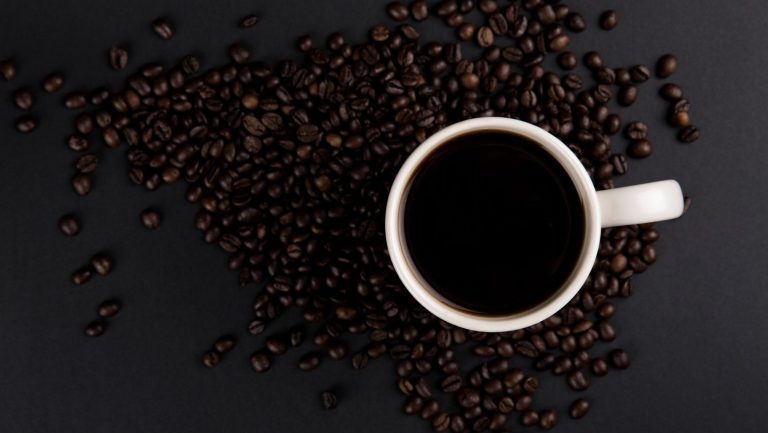When it comes to fasting, one common question arises: Is it acceptable to drink black coffee during fasting periods? While some doctors and practitioners have allowed this exception in the past, it’s essential to understand the potential drawbacks. This blog post aims to explore the impact of coffee consumption during fasting, highlighting the reasons why it may not be advisable.
The Circadian Clock Reset:
Although black coffee itself doesn’t contain calories that would interrupt ketosis during the fasting window, it does reset the circadian clock. This is particularly significant for those practising daily 16:8 intermittent fasting, where coffee should be avoided during the fasting window to maintain the desired effects.
Rest for the Digestive System:
One of the primary objectives of fasting is to provide complete rest to the digestive system and secretive glands. However, drinking coffee interrupts this rest and stimulates the secretion of hormones and digestive fluids. This, in turn, causes the liver to release sugar, disrupting the rejuvenation process. The same applies to other additives like lemon juice, apple cider vinegar, methi seeds, and amla extract. To ensure optimal results, it is recommended to avoid adding anything to your water during fasting.
Increased Acidity and Adrenal Hormones:
Drinking coffee on an empty stomach can lead to increased acidity in the stomach. This heightened acidity can aggravate conditions like irritable bowel syndrome (IBS) or inflammatory bowel disease (IBD). Additionally, caffeine consumption on an empty stomach triggers the release of cortisol and adrenal hormones, which raises heart rate and blood pressure. While it may provide a temporary energy boost, it interferes with the body’s natural circadian rhythm and can lead to long-term health issues.
Caffeine’s Impact on Mental Health and Sleep:
Caffeine in coffee can lower the brain’s ability to properly break down serotonin, the hormone responsible for promoting calmness and happiness. This can result in anxiety and even depression. Furthermore, reduced serotonin production affects sleep, making it more challenging to fall asleep at night. As coffee is a diuretic, it increases fluid loss from the body, potentially leading to dehydration.
Optimal Timing and Considerations:
Considering the aforementioned factors, it is advisable to consume coffee during your eating window, preferably with breakfast or lunch. To avoid sleep disturbances, it is recommended to avoid coffee after 12 noon or 1 PM, as its half-life is approximately six hours. It is important to note that many individuals may have difficulty efficiently breaking down caffeine, leading to its extended presence in the system and causing further disruption.
Case Study: The Role of Genetics in Caffeine Response:
Research on the genetics of caffeine consumption and its effects on individuals has shown that genetics play a significant role. Twin studies have revealed heritability rates ranging from 0.36 to 0.58 for caffeine-related traits. Genome association studies have linked variations in adenosine and dopamine receptors to caffeine-induced anxiety and sleep disturbances. Polymorphisms in metabolic enzymes, such as cytochrome P-450, have been associated with an increased risk of myocardial infarction in habitual caffeine consumers.
Understanding the Role of Genetics in Caffeine Response:
Basic pharmacology reveals that caffeine and its metabolites belong to the methylxanthine class, interacting with cyclic nucleotide phosphodiesterases. Caffeine is rapidly absorbed from the gastrointestinal tract and metabolized by cytochrome P-450 enzymes, primarily by CYP1A2, into dimethylxanthine metabolites. Genetic variations in CYP1A2 activity contribute to significant variability in caffeine metabolism. Clearance rates can vary up to 40-fold within and between individuals. Various exogenous factors such as drugs, medications, smoking, and caffeine itself, as well as endogenous factors like pregnancy, ethnicity, and genetics, can influence caffeine clearance. Studies have shown that Asian and African populations metabolize caffeine at a slower rate than Caucasians, leading to different responses and potentially more adverse effects.
Conclusion:
While the debate on drinking coffee during fasting continues, understanding the potential consequences is crucial. The impact of coffee on the circadian clock, digestive system, mental health, and sleep should be considered. Additionally, individual differences in caffeine metabolism due to genetic variations further emphasize the need for personalized approaches. It is advisable to consume coffee during the eating window, avoid coffee on an empty stomach, and be mindful of its potential effects on sleep. By making informed choices, individuals can optimize their fasting experience and overall well-being.



